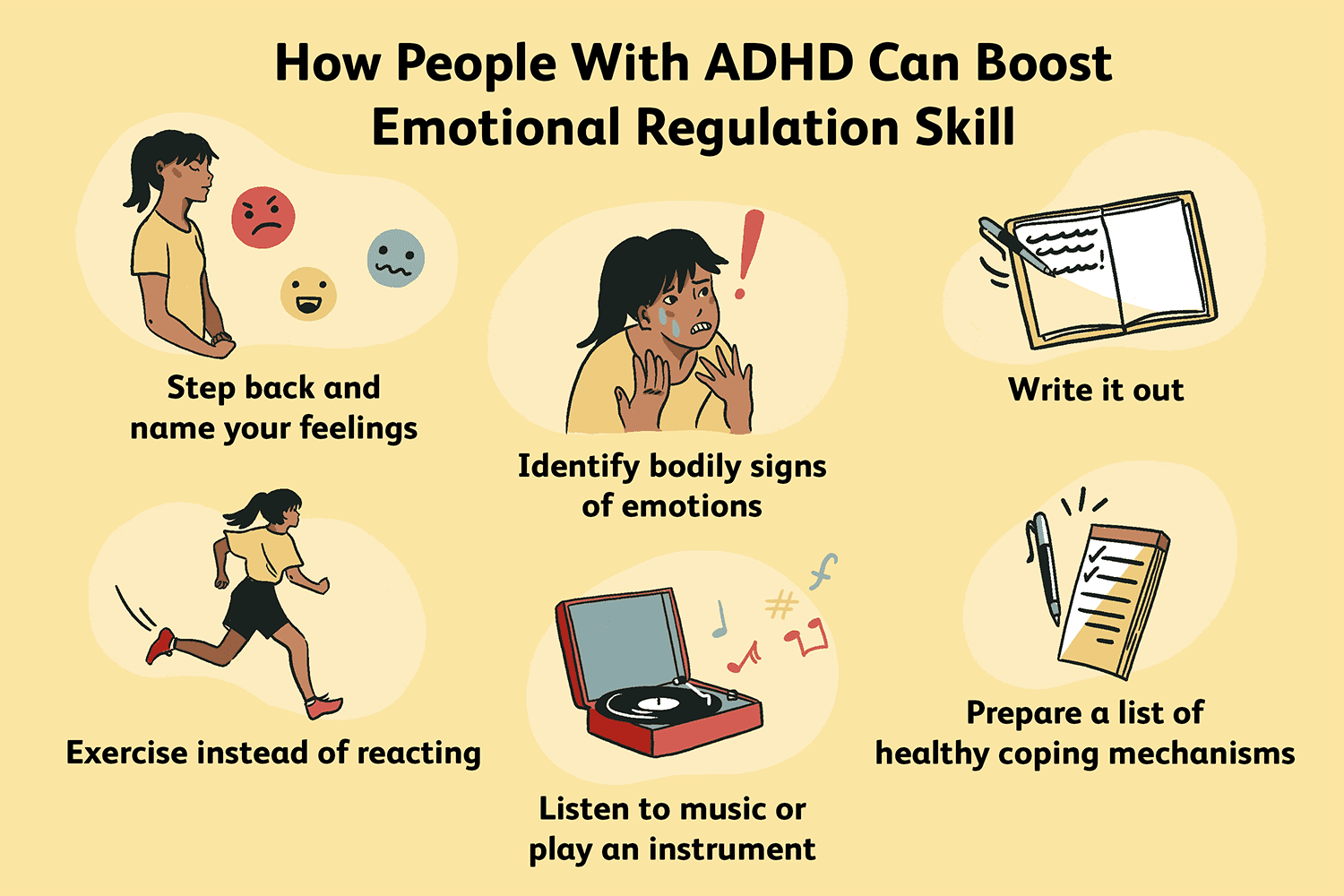
7 Effective Coping Mechanisms for Adults With ADHD to Manage Symptoms
January 13, 2024 - Reading time: 4 minutes
Adult Attention Deficit Hyperactivity Disorder (ADHD) can be challenging to manage, but with the right coping mechanisms in place, it is possible to lead a fulfilling life. This article provides practical tips and techniques for adults with ADHD to help them better cope with their symptoms.
1. Create Structured Routines
Establishing daily routines can provide structure, predictability, and a sense of control over one's life. This is particularly important for adults with ADHD who may struggle with time management and organization.
- Set an alarm to wake up at the same time every day
- Create a daily schedule that includes tasks, breaks, and leisure activities
- Establish regular bedtimes and sleep routines
- Use visual cues such as color-coded calendars or lists to help stay organized
2. Break Tasks into Smaller Steps
Breaking tasks down into smaller, manageable steps can make them feel less overwhelming and more achievable for adults with ADHD.
- Make a list of all the necessary steps to complete a task
- Prioritize tasks based on urgency or importance
- Set realistic time goals for each step and track progress
- Reward yourself with breaks or small treats after completing each step
3. Use Time Management Techniques
Time management techniques can help adults with ADHD stay focused, organized, and on track.
- Use a timer to set time limits for tasks or breaks
- Set alarms or use apps that provide gentle reminders of upcoming deadlines
- Break down larger projects into smaller, more manageable chunks and assign specific timeslots to each chunk
- Use the Pomodoro Technique: work for 25 minutes, take a five-minute break, then repeat four times before taking a longer break
4. Develop Strategies for Staying Focused
Developing strategies to maintain focus can help adults with ADHD stay on task and avoid distractions.
- Find a quiet, comfortable workspace free from distractions
- Use noise-canceling headphones or listen to soft background music while working
- Take regular breaks to help maintain focus and prevent burnout
- Set specific goals for each task and visualize yourself completing it successfully
5. Utilize Technology to Your Advantage
Technology can be a valuable tool in helping adults with ADHD stay organized, focused, and on track.
- Use digital calendars or planners that sync across devices for easy access
- Set reminders and alerts for important tasks or events
- Download productivity apps to help manage time, prioritize tasks, or break down projects into smaller steps
- Use voice-to-text features on devices to quickly capture thoughts and ideas
6. Seek Support from Others
Reach out to friends, family members, or support groups for understanding, encouragement, and advice.
- Share your challenges with others who understand what you're going through
- Discuss coping strategies and techniques that have worked for them
- Consider joining a support group or attending workshops on ADHD management
- Build a network of understanding individuals to help keep you accountable and motivated
7. Practice Self-Care and Stress Management Techniques
Taking care of your physical, emotional, and mental wellbeing is essential for managing ADHD symptoms.
- Exercise regularly to boost energy levels and improve focus
- Get enough sleep to maintain a healthy balance between work and rest
- Practice relaxation techniques such as deep breathing, meditation, or mindfulness exercises
- Seek professional help if needed; therapists can provide valuable guidance on managing ADHD symptoms and improving overall wellbeing
By incorporating these practical tips and techniques into your daily life, adults with ADHD can better cope with their symptoms and lead more fulfilling lives.
About
You can read reviews online, check with the Better Business Bureau, or ask for references from people you trust. When you've narrowed down your options, contact the centre to ask about their process and fees. Once you've found a qualified assessment centre, they will be able to help you determine if your child has ADHD and develop a treatment plan.